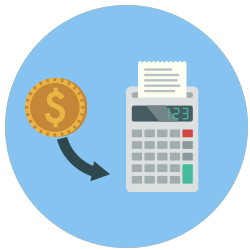Avoiding late fees: the essential guide – Credit Simple


How to avoid late fees (and improve your credit score at the same time)
There are few things in life as frustrating as a late payment fee – whether that’s on your credit card, electricity or telco bill. In New Zealand, a late payment fee can run anywhere from around $5-$18.1234
No-one wants to fork out a dinner’s worth of cash just because they were late on a single payment.
Here are a few tips to help you avoid such a fate. And as a bonus, on-time payments will increase your credit score thanks to New Zealand’s Comprehensive Credit Reporting.


Align all your due dates
If you’re like most people, you probably have more than a handful of monthly bills. And if they’re all due at different times of the month, it becomes easy to lose track and let some payments fall through the cracks.
Wouldn’t it be easier if all your monthly bills fell on the same day, like the 15th or 28th of every month? Not every biller will let you change your due date, but some might if you ask.
The benefits are tremendous:
- Less stress. You won’t constantly feel like you’re sending payments every other week.
- More time. You can set aside one block of time when the bills are due, and knock them out all at once.
- Better budgeting. If you know you have to have a certain amount of cash on hand on a specific date, it becomes easier to ensure there’s enough in your account to cover it.
- Fewer fees. All of the above benefits mean you’re more likely to pay all your bills on time and avoid those fees we’ve been talking about.


Set up automatic payments
Another way to avoid fees is to set up automatic payments or direct debits. There are actually two ways to do this:
- Traditional direct debit. Where you authorise a third-party to take funds from your bank account. You organise this through your bank.
- Automatic Payment (AP). Where you give your credit or debit card details to the third-party to charge your account on the due date.
Use the AP method wherever you can. Since it’s all done through your bank, it’s easier to keep tabs on all your direct debits.
Nonetheless, both methods ensure that you’ll pay your bills on time, provided you have enough money in the respective accounts to cover them.


Go with a lender or telco with the lowest late fees
Most lenders, utilities and telcos will publish their fees online, including late fees, early termination fees, loan establishment fees and so forth.
There’s more to consider than just fees, like product costs and interest rates. So when you check out our offers, make sure you compare the late fees. If you’re comparing lenders or telcos and all things else are equal, you might want to consider one that charges the least amount in fees.
Talk to your bank, lender or telco
Talking to the lender is always a good way to avoid or eliminate a late fee. Many will waive your late fee if it’s your first one and you have an otherwise strong repayment record.
They may even help you if you’re struggling financially and you think you’ll be late on an upcoming fee. Many billers have hardship programs that will set you up on a temporary payment plan that is more manageable for you.


Escalate the problem
If you feel you were charged inappropriately, New Zealand Consumer Protection suggests you take the following steps:5
- 1. Contact your lender or debt collector: As explained above, just getting someone on the phone and explaining your situation might help you avoid fees.
- 2. Contact the lender’s dispute resolution scheme: Many lenders will be a part of a dispute resolution scheme that will look at your situation independently, and possibly offer a solution.
- 3. Report your issue to the Commerce Commission: This government agency won’t take on your individual case, but they will collect your information and potentially take action against lenders who break the rules.
The information in this blog post is general in nature and does not constitute personal financial or professional advice. It is not intended to address the circumstances of any particular individual. We do not guarantee the accuracy and completeness of the information and you should not rely on it. Before making any decisions, it is important for you to consider your personal situation, make independent enquiries and seek appropriate tax, legal and other professional advice. The views expressed in linked articles are the author’s. They may not represent the views of Credit Simple nor does Credit Simple endorse them.
Endnotes
1. https://www.interest.co.nz/news/49417/commerce-commission-draws-line-sand-credit-card-late-payment-fees
2. https://www.westpac.co.nz/managing-your-money/resources/fees/cards/
3. https://www.kiwibank.co.nz/personal-banking/credit-cards/rates-and-fees/
4. https://help.vodafone.co.nz/app/answers/detail/a_id/15978/~/about-vodafones-late-payment-fee
5. https://www.consumerprotection.govt.nz/helpoans-and-debt/unfair-fees/-product-service/l
Credit Simple
Credit Simple gives all Kiwis free access to their credit score, as well as their detailed credit report. See how your credit score compares by age, gender and community and gain valuable insights into what it all means.
All stories by: Credit Simple